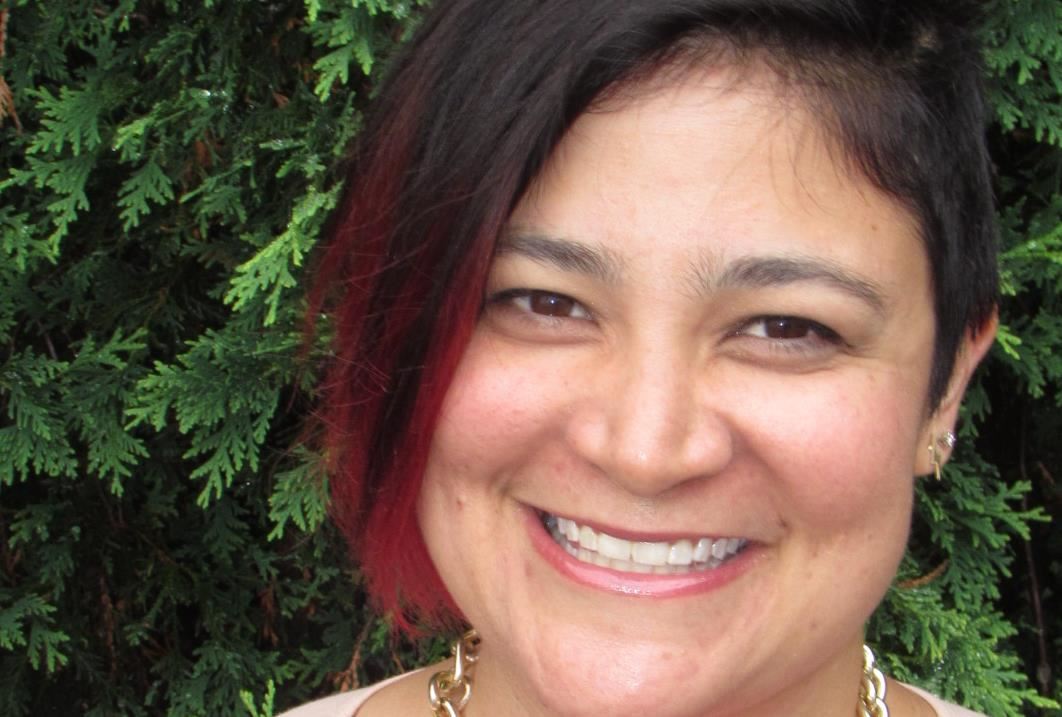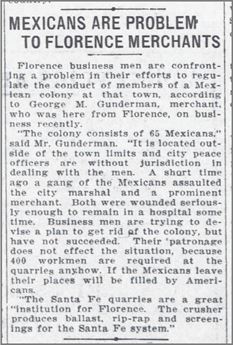

Big Idea: It's Time to Change the Way We Talk About Immigrants
September 4, 2018
Kandace Creel Falcón is an Associate Professor and Director of Women’s and Gender Studies at Minnesota State University Moorhead, University of Kansas graduate, and native of Manhattan, Kansas.
Too often in the past, information about various immigrant groups shared by the mainstream media relied on harmful stereotypes and played up the fears and anxieties of the U.S. receiving community. Despite data that demonstrates immigrants overwhelmingly benefit society, the negative narratives about immigrants continue today.
The public consumes a variety of messages about immigration through media. Too often in the past, information about various immigrant groups shared by the mainstream media relied on harmful stereotypes and played up the fears and anxieties of the U.S. receiving community. Despite data that demonstrates immigrants overwhelmingly benefit society, the negative narratives about immigrants continue today. The way the media chooses to frame, discuss, or cover immigration issues reflects broader understandings of our social order.
Mainstream media links immigration to Mexican people in spite of data showing a decline in Mexican immigration to the US and groups of people from other regions of the world migrating to the US at near or even greater numbers than those from Mexico. This occurs because the media associates immigrants with crime, maintaining racial differences between a white norm and colored other, and unjust stereotypes about the motivations behind why people immigrate to the US. Crossing the US border without papers (undocumented) is a civil violation; however, the mainstream media chooses to place crossing within a criminal framework and maintains negative attitudes about immigration, which informs our public policy. Civil rights groups fight to encourage news rooms to use more humanizing language for example, moving away from terms like “illegal alien,” and replacing the term with “undocumented” in the name of celebrating human migration as a human right.
The link between criminalization and people of color remains a common tactic in stories about immigrants and refugees across media sources. Even though people who would be racially categorized as white immigrate to the United States as well, the media focuses on immigrants of color and relies on strategies that link narratives of crime with people of color already residing in the US. This criminalization of immigrants then becomes recycled and revised; in other words the ways media covered immigration in the past influences our current news coverage. Whether it be newspapers bemoaning the influx of Chinese immigrants to the West Coast that ultimately influenced the Chinese Exclusion Act prohibiting the immigration of Chinese people to the US in the 1880s, or the way Kansas newspapers overly focused on the criminal activities of Mexican railroad laborers coming to the Sunflower State in the early twentieth century, the approaches to covering immigrant issues as criminal instills fear of others in the reading public. This fear-based approach to covering immigration reflects how expectations and ideas about who belongs are constantly negotiated through our media sources. Because immigration and citizenship are hotly contested issues – as in who has the right to claim US citizenship and how do folks access pathways to legal residence – these issues reflect mainstream understandings of gender and sexuality. While we may expect the twenty-first century US to approach navigating these conversations in a balanced way, we would be remiss to overlook how news sources historically engaged with issues related to immigration in the past.
While Latina/o/x communities receive coverage in mainstream reporting, the majority of the stories reflecting this community continue to focus on “illegal” immigration and crime. In focusing on these two issues alone, the Latina/o/x community lacks outlets to be seen as viable and contributing members of their communities. These contemporary challenges point to a need to diversify newsrooms and develop more pathways for creators of color to access venues to create content that shows fuller and richer characteristics of Latina/o/x lives. Newspapers of course represent just one avenue to share stories about immigration, and with today’s increase of technological tools immigrants create opportunities to share their own stories. Regardless of the method of storytelling it is clear more diverse, welcoming, and everyday narratives deserve a place in the tapestry of understanding we all weave as we get to know people from other cultures.
These views do not necessarily reflect those of Humanities Kansas, its board of directors, or staff.
Spark a Conversation
Read
- A Cup of Water Under My Bed by Daisy Hernandez
- The Distance Between Us by Reyna Grande
- I'm Not Your Perfect Mexican Daughter by Erika Sanchez
- “Anchor Babies” and Birth Tourists: Birthright Citizenship and the Racialized Politics of Belonging by Chelsea Meacham
- Lost Opportunities: The Reality of Latinos in the U.S. Criminal Justice System by Nancy E. Walker, Francisco A. Villarruel, J. Michael Senger, Angela M. Arboleda
- National Poll: The Impact of Media Stereotypes on Opinions and Attitudes Towards Latinos by Matt A. Barreto, Sylvia Manzano, and Gary Segura of Latino Decisions
- National Hispanic Media Coalition
- Latino USA (Radio programming/Podcast)
- My life as an undocumented immigrant by Jose Antonio Vargas
- National Council for La Raza – UnidosUS campaign
- Key Findings about US Immigrants by Gustavo López and Kristen Bialik
- Illegal vs undocumented: The heated divide over how we talk about immigration by John Sharp
Watch
- Under the Same Moon
- A Day Without a Mexican
- Innocente short film
- Leo Chavez lecture on immigration and representation of Latina/os in the media (video)
About Kandace Creel Falcón
Kandace Creel Falcón is the first Xicana to earn a Ph.D. in Feminist Studies, which she completed at the University of Minnesota under the mentorship of Dr. Edén Torres. A recipient of the Harvard University Schlesinger Library Oral History Grant, her work grounds storytelling, representation and Chicana feminisms in the Midwest. Born in Manhattan, KansasDr. Creel Falcón grew up in Albuquerque, New Mexico and returned to the sunflower state to pursue her bachelor’s degree at the University of Kansas. She brings her Jayhawk pride to her role as Associate Professor and Director of Women’s and Gender Studies at Minnesota State University Moorhead. She resides in rural Minnesota with her Finnish American vaimo (wife), their growing brood of chickens, ducks, goats and dreams of completing the conversion of their rural property into a writerly retreat B&B.




